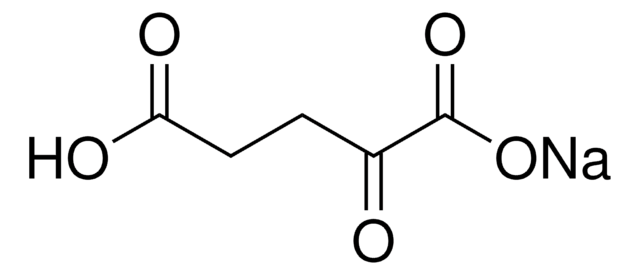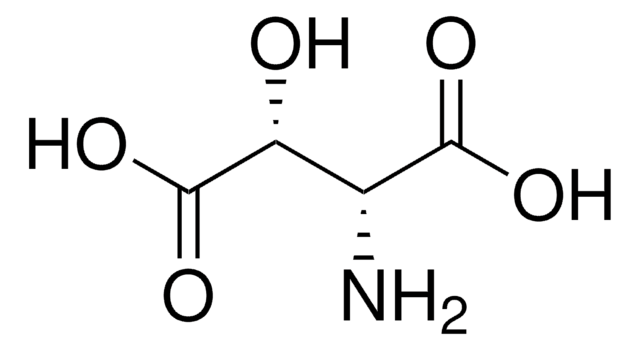K2389
Kainic acid monohydrate
≥98% (HPLC), from Digenea simplex
Synonym(s):
2-Carboxy-3-carboxymethyl-4-isopropenylpyrrolidine
About This Item
Recommended Products
biological source
Digenea simplex
Assay
≥98% (HPLC)
form
powder
color
white
solubility
H2O: >10 mg/mL
storage temp.
2-8°C
SMILES string
O.CC(=C)[C@H]1CN[C@@H]([C@H]1CC(O)=O)C(O)=O
InChI
1S/C10H15NO4.H2O/c1-5(2)7-4-11-9(10(14)15)6(7)3-8(12)13;/h6-7,9,11H,1,3-4H2,2H3,(H,12,13)(H,14,15);1H2/t6-,7+,9-;/m0./s1
InChI key
FZNZRJRSYLQHLT-SLGZUKMRSA-N
Looking for similar products? Visit Product Comparison Guide
Application
- As a convulsant to induce epileptogenesis and epilepsy in mice.
- To stimulate in vitro excitotoxic trauma in spiral ganglion neurons on inner hair cells.
- To induce seizures in rat model.
- To induce status epilepticus in adult male Wistar rats.
Biochem/physiol Actions
related product
Storage Class Code
11 - Combustible Solids
WGK
WGK 3
Flash Point(F)
Not applicable
Flash Point(C)
Not applicable
Personal Protective Equipment
Certificates of Analysis (COA)
Search for Certificates of Analysis (COA) by entering the products Lot/Batch Number. Lot and Batch Numbers can be found on a product’s label following the words ‘Lot’ or ‘Batch’.
Already Own This Product?
Find documentation for the products that you have recently purchased in the Document Library.
Our team of scientists has experience in all areas of research including Life Science, Material Science, Chemical Synthesis, Chromatography, Analytical and many others.
Contact Technical Service








